Illustrative Image: TWAS-SISSA-Lincei Research Cooperation Visits Programme 2025: A Prestigious Opportunity for Young Scientists from Least Developed Countries
Image Source & Credit: TWAS
Ownership and Usage Policy
Application Deadline: 15 October 2025
The 2025 edition of the TWAS-SISSA-Lincei Research Cooperation Visits Programme is now open for applications. This initiative, jointly organized by UNESCO-TWAS (The World Academy of Sciences), the Accademia Nazionale dei Lincei, and the International School for Advanced Studies (SISSA), aims to empower talented young scientists from Least Developed Countries (LDCs) by offering them a unique opportunity to engage in high-level research collaborations and advanced training in Italy.
This prestigious programme facilitates three-month research visits to internationally renowned scientific institutions located in the Friuli Venezia Giulia region of Italy, specifically in Trieste and Udine. These visits are designed to promote scientific capacity-building, foster international cooperation, and contribute to sustainable development through cutting-edge research that aligns with the United Nations Sustainable Development Goals (SDGs).
🌍 Programme Objectives
The initiative addresses several key goals:
-
Enhance Research Capacity: By exposing scientists from LDCs to world-class laboratories and facilities, the programme helps enhance their research skills and methodologies.
-
Foster International Collaboration: It encourages long-term scientific partnerships between institutions in Italy and research centres in LDCs.
-
Support the SDGs: Special emphasis is placed on research projects that contribute to the advancement of sustainability science, ensuring relevance to global developmental priorities.
-
Encourage Diversity and Inclusion: The programme strongly encourages women scientists to apply, supporting gender equity in the global research landscape.
✅ Eligibility Criteria
Applicants must meet the following requirements:
-
Age: Must be 40 years or younger as of 31 December 2025.
-
Qualifications: Must hold an MSc degree or higher.
-
Nationality: Must be a national of a Least Developed Country (see the list: UN LDCs).
-
Current Position: Must hold an active research position in an institution located within a Least Developed Country.
-
Field of Research: The proposed research project must fall within the scientific areas outlined in the application form, particularly those contributing to the SDGs.
-
Residency: Applicants already residing in Italy are not eligible.
-
Commitment to Sustainability Science: Projects should ideally relate to environmental, economic, or social aspects of sustainable development.
🏛 Eligible Host Institutions in Italy
Participants can undertake their research at any of the following prestigious centres:
-
SISSA (International School for Advanced Studies)
-
ICGEB (International Centre for Genetic Engineering and Biotechnology)
-
INFN (National Institute for Nuclear Physics – limited to projects with Prof. Andrea Vacchi)
-
OGS (National Institute of Oceanography and Applied Geophysics)
-
University of Trieste – units.it/en
-
University of Udine – uniud.it/en
-
IOM-CNR (Materials Foundry – National Research Council)
-
Area Science Park – areasciencepark.it
-
Elettra Sincrotrone Trieste – elettra.eu
📝 Application Procedure
Applications are reviewed and selected by a committee based on scientific merit, relevance to sustainability goals, and potential for impact in the applicant’s home country.
Required Documents:
-
Completed Application Form (available from TWAS)
-
Copy of Passport (page with personal details)
-
Curriculum Vitae
-
Statement of Scientific Interests and Future Plans, with reference to how the research contributes to the SDGs
-
List of Publications (no need to submit actual papers)
-
Academic Certificates (MSc or higher)
-
Invitation Letter from a selected host institution clearly stating:
-
Duration (3 months)
-
Scope of proposed collaboration
-
Confirmation of prior communication and agreement on research activities and available facilities
-
-
Two Recommendation Letters from academic referees familiar with the applicant’s work (sent directly to TWAS and must be signed)
Submission: Applications must be submitted in English. Electronic submissions via email are acceptable provided that all signed documents are scanned and attached.
🎯 Why Apply?
-
Access to Advanced Research Infrastructure
-
Build International Networks
-
Contribute to Scientific Solutions for Global Challenges
-
Enhance Career Prospects and Research Visibility
-
Support for Early-Career Scientists from Underserved Regions
For complete details and to download the application form, please visit the Official Programme Webpage.




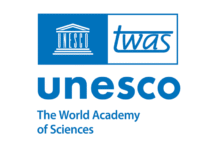
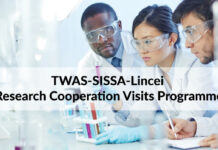
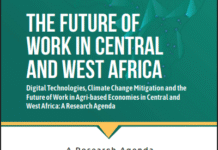
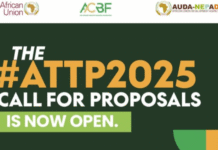



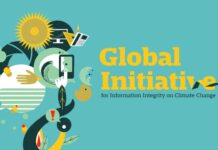
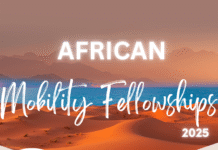



 The African Research (AR) Index is a comprehensive scholarly directory and database focused explicitly on journal publishers that publish and disseminate African research.
The African Research (AR) Index is a comprehensive scholarly directory and database focused explicitly on journal publishers that publish and disseminate African research.


[…] TWAS (The World Academy of Sciences) is a UN-backed global network that champions science in developing nations Maseno University+12Facebook+12Opportunities Circle+12TWAS+7Scholarships.af+7Opportunity Desk+7Opportunities Circle+3Opportunity Desk+3Scholarships.af+3TWAS+9Opportunities Circle+9Grants Database+9Mesa Malaria+5Grants Database+5TWAS+5TWAS+2Maseno University+2African Researchers Magazine+2TWAS+2Wikipedia. […]